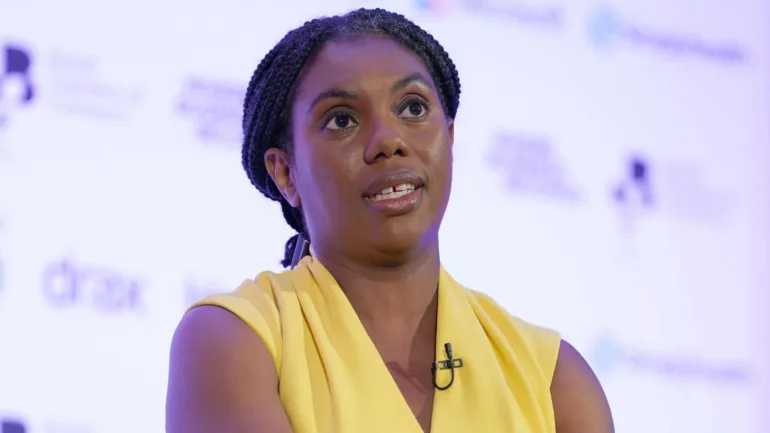Kemi Badenoch, the leader of the UK’s Conservative Party, recently shared her perspective on her identity, emphasizing her Yoruba heritage over a broader Nigerian identity.
In an interview with The Spectator, she expressed that she feels less connected to Nigeria as a whole, particularly because of her lack of common ground with the people from the northern regions, which she associates with Islamism and groups like Boko Haram.
“I find it interesting that everybody defines me as being Nigerian,” Badenoch remarked. “I identify less with the country than with the specific ethnicity [Yoruba].” She continued, “I have nothing in common with the people from the north of the country, the Boko Haram where Islamism is.”
This statement has sparked significant backlash, particularly from Nigerian public figures. Many have criticized her frequent condemnation of Nigeria’s political and security challenges, including rampant corruption and instability. One prominent critic, Vice President Kashim Shettima, who hails from Borno, the heartland of Boko Haram activity, advised her to change her name if she wished to distance herself from Nigeria. He referred to Nigeria as “the greatest black nation on earth.”
Despite the criticism, Badenoch has remained firm in her stance, reaffirming that her Yoruba identity is what defines her most. She further elaborated, “Somebody once told me when I was very young that my surname was a name for people who were warriors. They protected the crown, and that’s what I see myself as doing.” She concluded by stating, “I am here to protect and I will die protecting this country because I know what’s out there.”
Badenoch’s comments continue to fuel a broader debate on identity and the challenges faced by Nigerians both within and outside the country.


